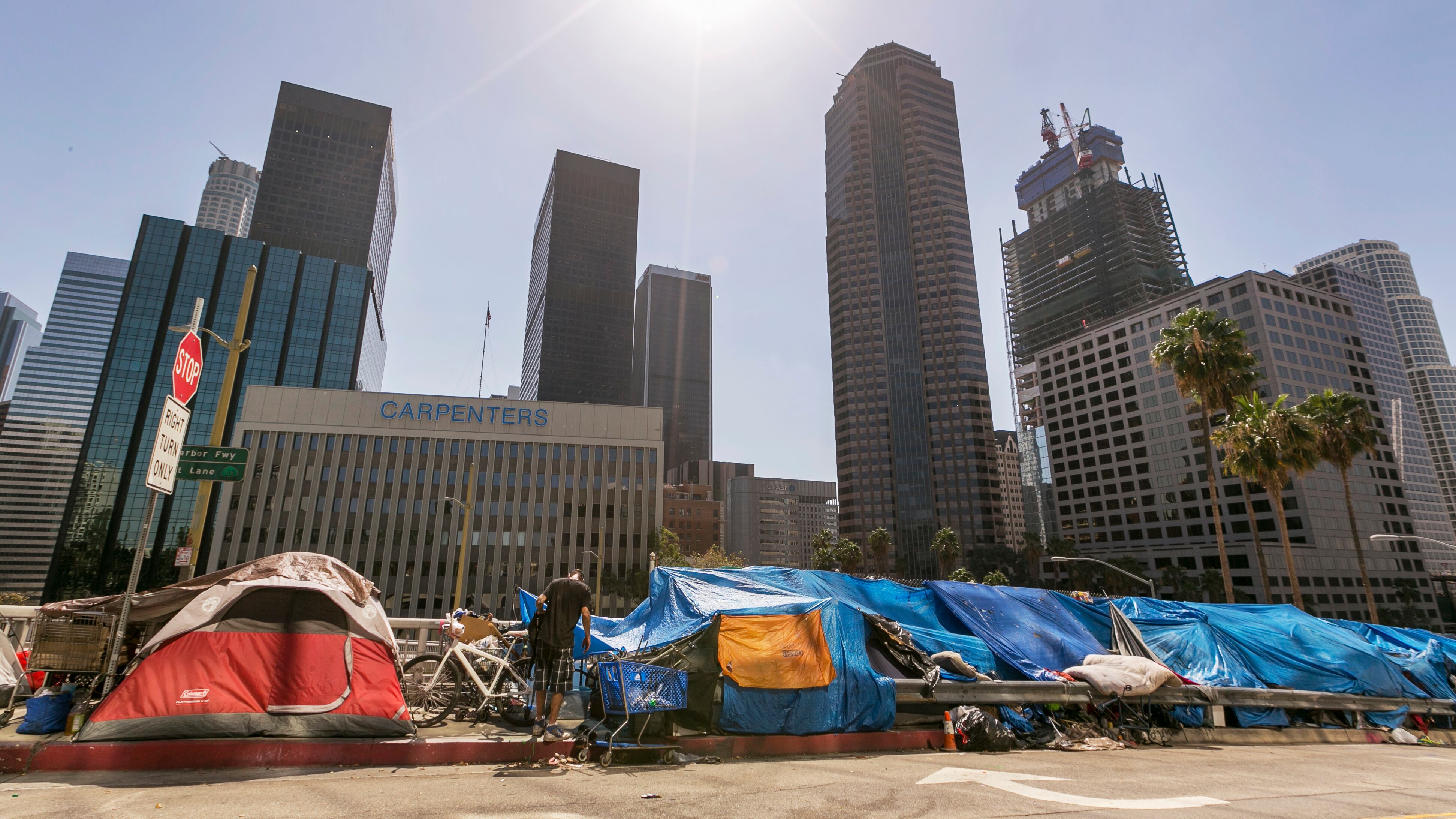As the city celebrates the Rams’ Super Bowl win, many are concerned about the homelessness crisis in South L.A.
Cleanup crews removed personal belongings, trash and debris from several homeless encampment sites from LAX Airport to SoFi Stadium, the location for the Super Bowl LVI. This action sparked a debate within the community about SoFi Stadium and future plans for the homeless population.
Human biology major Morgan Lawrence grew up near Sofi Stadium and attended William H. Kelso Elementary School right across the street from the Forum. “What the city has done in relation to the stadium is really dangerous because it’s pushing people away from where they’ve made themselves comfortable, which is in Inglewood,” Lawrence said.
With new events scheduled to take place at SoFi Stadium including the 2023 College Football National Championship and the 2028 Olympic Games, she believes the homelessness issue will be “worse” than the Super Bowl. “They’re just going to keep pushing these people away until they have absolutely nowhere to go,” Lawrence said.
USC undergrad cinema and media studies major Jeremy Davis has lived in Inglewood all his life and believes the stadium has provided the city with revenue to the community, however at the expense of others lifestyles. Local businesses and mom & pops shops have been “displaced and replaced by high rise apartment buildings and they’ve built casinos and storefronts,” Davis said.
He believes that gentrification expands “under represented and under funded” communities across America.
Downtown L.A. resident Taylor Collins lives near Crypto.com Arena. The unhoused are not allowed on her street.
“The week before I started moving in, [city officials] were going down the street with trash trucks and throwing away people’s stuff,” Collins said.
Niles Fitch, a USC junior majoring in film and television production who also lives in Downtown, has witnessed police removing unhoused people.
“One block could be a very nice apartment complex and you see security,” Fitch said. “And then the next one could have tents set up or [unhoused] people walking around.”
Fitch added that developments like Crypto.com Arena and SoFi Stadium have raised property values and helped businesses while actively “pushing the [unhoused] communities more towards Skid Row and places like that.”
Gary Painter, professor at the Price School of Public Policy and director of the Homelessness Policy Research Institution (HPRI) at USC, works on how to accelerate equitable and culturally informed solutions to end homelessness in the L.A. area.
“When someone has brought a lot of financial resources to a particular place, they’re going to do what they can to protect their investment as they understand it,” Painter said. “[People may] call the police when someone is experiencing homelessness, but police is likely the wrong solution. There should be an outreach worker to help find housing for that person experiencing homelessness.”
The new stadium has been labeled “a catalyst of rebirth for Inglewood.” The Super Bowl was expected to deliver between $234 to $477 million to the Los Angeles economy, including thousands of new job opportunities in the event-production and hospitality sector, plus major contracts for local businesses according to a report by Micronomics Economic Research and Consulting. The report also estimated the stadium will provide around $470 million in net fiscal effect to Inglewood’s general budget over the next 25 years, in addition to hosting the largest football event of the year.
However, the dark belly is that there are currently at least 525 people experiencing homelessness in the city of Inglewood, according to a count by the South Bay Coalition to End Homelessness in 2020. James T. Butts Jr., the mayor of Inglewood, argued that SoFi Stadium has made Inglewood a much more desirable place to live and invest. During an interview with NBC Sports, Mayor Butts called the opening of the stadium, “the resurrection of the city of champions.”
Ethan Ward is a USC alum and journalist who writes about homelessness in L.A.
“There is a lot of coverage. And I think mostly because we’re in an election year, this is one of the biggest issues that’s on voters’ minds,” Ward said. “Why did it take the Super Bowl coming here for you all [city officials] to care about beautifying Inglewood when it’s been here all this time? Why did it take a show like ‘Insecure’ for people to pay attention to South L.A.?”
Professor Painter shared solutions to ending homelessness including outreach efforts and hosting events to deconstruct the stereotypes involving how unhoused people became homeless. The Price Center and HPRI host symposiums that focus specifically on homelessness. There’s no quick solution to end homelessness, however, there are opportunities to actively work towards a solution.
The next event on housing specifically is scheduled for Wednesday, April 13th virtually.
